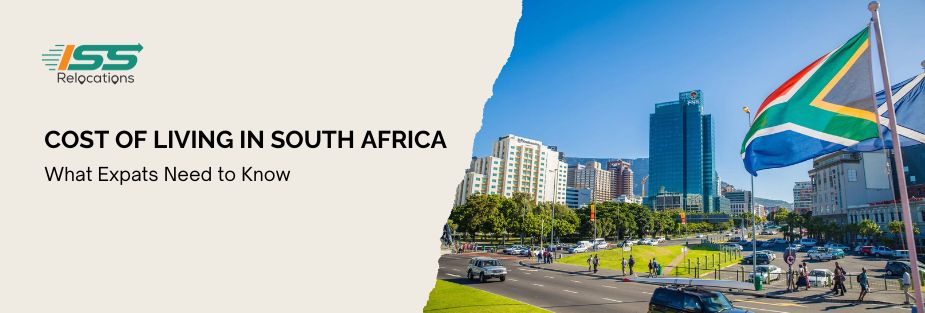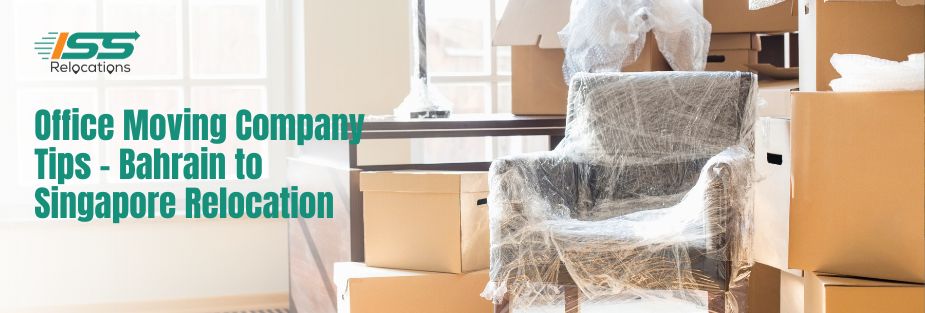
Cost of Living in South Africa: What Expats Need to Know
Relocating to a new country is an exciting adventure, but it also requires thorough preparation, especially when it comes to managing finances. For those considering a move to South Africa, understanding the cost of living in South Africa is essential. The country offers a diverse lifestyle, from vibrant urban centers to scenic rural areas, each with its own unique expenses. Knowing what to expect in terms of daily costs, housing, and other living expenses can help expats plan their move with confidence and avoid unexpected financial surprises.
South Africa’s cost of living can vary significantly depending on the region, lifestyle, and personal preferences. Whether you’re planning to settle in the bustling cities of Johannesburg or Cape Town or prefer a quieter life in a suburban area, it’s crucial to have a clear picture of what your monthly budget might look like. In this article, we will break down the key factors that contribute to the cost of living in South Africa, with a special focus on how ISS Relocations can support you throughout this process.
How ISS Relocations Helps You Navigate the Cost of Living in South Africa
Comprehensive Pre-Move Consultations
Understanding the cost of living in South Africa is the first step to a successful relocation, and ISS Relocations is here to guide you through this crucial process. One of the key services we offer is comprehensive pre-move consultations that are tailored to your specific needs. These consultations provide detailed insights into what you can expect financially when moving to South Africa.
During these sessions, we cover all the essential aspects, from housing costs and utilities to groceries and transportation. We understand that every family or individual has unique requirements, so we offer personalized advice that considers your lifestyle preferences and financial situation. With ISS Relocations, you can feel confident knowing that you’re fully prepared to manage the cost of living in South Africa without any unexpected surprises.
Customized Relocation Services
Relocating to a new country involves much more than just packing and moving your belongings. It’s about settling into a new environment, understanding the local culture, and most importantly, managing your finances effectively. At ISS Relocations, we offer customized relocation services designed to meet your specific needs, ensuring that every aspect of your move is handled smoothly.
Our team of experts works closely with you to understand your budget and lifestyle, helping you find affordable housing, schools, and other essential services that align with your financial goals. We know that the cost of living in South Africa can be a major concern for expats, which is why we focus on helping you make informed decisions that will ease your transition into South African life. From identifying budget-friendly neighborhoods to offering practical tips on everyday expenses, ISS Relocations is your trusted partner in making your move to South Africa both financially sound and stress-free.
Moving in South Africa?
Begin Your Stress-Free Relocation Journey Today – Request A Quote Now!
Understanding South Africa’s Economic Landscape
Key Cost Factors for Expats
When moving to a new country, understanding the economic landscape is crucial, especially when it comes to managing daily expenses. The cost of living in South Africa varies depending on several factors, including location, lifestyle, and personal preferences. Major urban centers like Johannesburg and Cape Town tend to have higher costs, particularly for housing and entertainment, while smaller towns and rural areas offer more affordable living options.
At ISS Relocations, we provide detailed insights into these key cost factors to help you plan your budget effectively. Housing, utilities, groceries, transportation, and healthcare are among the most significant expenses you will encounter. We break down these costs to give you a clear picture of what to expect, ensuring that you are well-prepared to manage the cost of living in South Africa without any surprises.
Cost-Saving Strategies for Expats
Relocating to South Africa doesn’t have to strain your finances. With the right strategies, you can comfortably manage the cost of living in South Africa while enjoying all that the country has to offer. ISS Relocations is committed to helping you maximize your budget by providing practical cost-saving tips tailored to your lifestyle.
For instance, we offer guidance on where to shop for groceries, how to take advantage of local markets, and which budget-friendly neighborhoods offer the best value for your money. We also advise on transportation options, helping you decide whether to rely on public transit or invest in a vehicle. Our goal is to ensure that your transition to South African life is as smooth and affordable as possible, allowing you to focus on enjoying your new home.
Housing Costs in South Africa
Urban vs. Suburban Living
One of the most significant factors affecting the cost of living in South Africa is the choice between urban and suburban living. Cities like Johannesburg, Cape Town, and Durban are known for their vibrant lifestyles, but this comes at a higher cost, particularly in terms of housing. In these urban areas, rental prices and property costs are generally higher, with apartments and houses in prime locations demanding a premium.
Conversely, suburban areas and smaller towns offer more affordable housing options without sacrificing quality of life. These regions provide a quieter, more relaxed environment, often with more space and better access to nature. ISS Relocations helps expats weigh the pros and cons of each option, providing detailed information on average rental prices, property types, and the amenities available in different areas. This allows you to make an informed decision that best suits your budget and lifestyle, ensuring that you manage the cost of living in South Africa effectively.
Buying vs. Renting
Deciding whether to buy or rent property is another critical consideration for expats in South Africa. Both options come with their own set of advantages and challenges, and the choice often depends on your long-term plans and financial situation. Renting is a popular option for many expats, as it offers flexibility and requires a lower upfront investment. However, rental costs can vary widely depending on the location and the type of property.
On the other hand, buying property can be a sound investment if you plan to stay in South Africa for an extended period. While the initial costs are higher, owning property can offer stability and potential financial benefits over time. ISS Relocations provides expert advice on both renting and buying, helping you navigate the real estate market and choose the option that aligns with your financial goals. By understanding the cost of living in South Africa and making informed housing decisions, you can ensure a comfortable and financially secure stay in the country.
Daily Expenses: What Expats Should Budget For
Groceries and Dining
One of the key components of the cost of living in South Africa is daily expenses like groceries and dining. The country offers a wide range of options for food shopping, from large supermarkets to local markets, each with different price points. On average, grocery costs in South Africa are reasonable, but they can vary depending on whether you purchase imported goods or local products. Expats who adapt to local eating habits often find that they can significantly reduce their grocery bills by buying fresh produce and other staples from local markets.
Dining out in South Africa is generally affordable compared to other countries, especially if you stick to local restaurants and cafes. However, dining in high-end restaurants or opting for international cuisine can quickly add up. To manage the cost of living in South Africa effectively, it’s advisable to balance home-cooked meals with occasional dining out, making the most of the diverse culinary scene without overspending.
Transportation and Commute Costs
Transportation is another significant factor to consider when budgeting for the cost of living in South Africa. Whether you choose to own a car or rely on public transportation, understanding the costs involved will help you plan your finances better. For those living in major cities, public transportation options such as buses, trains, and minibus taxis are widely available and relatively affordable. These options are ideal for expats who prefer not to drive or want to avoid the costs associated with car ownership, such as fuel, insurance, and maintenance.
On the other hand, owning a car offers greater flexibility, especially if you plan to explore more remote areas or need to commute longer distances. While the initial cost of purchasing a vehicle can be high, ongoing expenses like fuel and maintenance should be factored into your monthly budget. ISS Relocations can help you assess your transportation needs and choose the most cost-effective options to manage the cost of living in South Africa without compromising on convenience or quality of life.
Healthcare Costs in South Africa
Public vs. Private Healthcare
Healthcare is an essential consideration for expats, and it plays a significant role in the overall cost of living in South Africa. The country offers both public and private healthcare systems, each with its own costs and levels of service. Public healthcare in South Africa is generally more affordable, but it can be limited in terms of accessibility and the quality of care provided. For this reason, many expats opt for private healthcare, which offers faster service and access to a broader range of medical specialists.
Private healthcare, however, comes with higher costs, including expensive medical bills and the need for comprehensive health insurance. Expats should be prepared to budget for these additional expenses as part of their overall cost of living in South Africa. ISS Relocations can assist you in understanding the healthcare system and selecting the right insurance plan to ensure that you and your family receive the best care possible while staying within your budget.
Routine Medical Costs
Routine medical costs are another important aspect to consider when evaluating the cost of living in South Africa. This includes regular doctor visits, dental care, prescription medications, and any other ongoing healthcare needs. While public healthcare can cover some of these costs at a lower price, many expats prefer the convenience and quality of private clinics and hospitals, despite the higher fees.
To manage these expenses effectively, it’s important to have a clear understanding of what your health insurance covers and what you will need to pay out-of-pocket. By planning ahead and budgeting for routine medical expenses, you can ensure that your healthcare needs are met without placing undue strain on your finances. ISS Relocations offers guidance on navigating the healthcare landscape in South Africa, helping you to incorporate these costs into your overall budget and manage the cost of living in South Africa with ease.
For expats evaluating the cost of living in South Africa, it’s also worth following regional infrastructure developments. The Focus Africa aviation conference aims to enhance connectivity and economic growth, which may influence future living standards and travel accessibility across the continent.
Education Costs for Expat Families
Public Schools vs. Private Schools
For expat families, education is a crucial factor that significantly impacts the cost of living in South Africa. The country offers both public and private schooling options, each with its own costs and benefits. Public schools are generally more affordable, with fees that vary depending on the region and the school’s reputation. However, the quality of education in public schools can be inconsistent, which may influence your decision if you want the best for your children.
Private schools, on the other hand, provide a higher standard of education, often with smaller class sizes and more extracurricular activities. However, these advantages come at a cost, with private school fees being substantially higher than those of public schools. When planning for the cost of living in South Africa, it’s essential to account for these education expenses, especially if you choose to enroll your children in private institutions.
International Schools
Many expat families prefer to enroll their children in international schools, which offer curricula similar to those in their home countries. While these schools provide a familiar educational environment and are often considered the best option for ensuring continuity in your child’s education, they are also the most expensive. The fees for international schools can significantly add to the overall cost of living in South Africa.
International schools are usually located in major cities and provide top-notch facilities and instruction. However, it’s important to budget for these costs early on, as they can represent a large portion of your monthly expenses. ISS Relocations can assist you in finding the right school for your children, helping you weigh the costs against the benefits to make an informed decision that suits your financial situation.
Wrapping Up
Understanding the cost of living in South Africa is a crucial step for any expat planning to move to this vibrant country. From housing and daily expenses to healthcare and education, each factor plays a significant role in shaping your overall budget. By carefully considering these costs and planning accordingly, you can ensure a smooth and financially stable transition.
ISS Relocations is here to support you every step of the way, providing expert advice and personalized services to help you manage your finances effectively. Whether you’re navigating housing options, budgeting for daily expenses, or selecting the right school for your children, our team is dedicated to making your relocation experience as seamless and stress-free as possible.
Plan Stress-free Move with Top Moving Company in UAE - ISS Relocations

Frequently Asked Questions
What is the cost of living in South Africa for expats?
The cost of living in South Africa is relatively affordable compared to many expat destinations. Housing, transportation, and daily expenses vary by city, with Johannesburg and Cape Town being the most expensive. ISS Relocations provides expert guidance to help you manage the cost of living in South Africa and plan your move effectively.
How expensive is housing in South Africa for expats?
Housing costs in South Africa depend on location and property type. Rentals in premium areas like Sandton or Camps Bay can range from $800 to $2,500 per month. ISS Relocations assists in finding housing that fits your budget and lifestyle, making the cost of living in South Africa manageable.
How much does transportation cost in South Africa?
Public transportation is inexpensive, with minibus taxis and buses being the primary options. Ride-hailing services and car ownership are common among expats, costing $300–$600 monthly, including fuel and maintenance. ISS Relocations provides insights to help you optimize your transportation budget when navigating the cost of living in South Africa.
What are the education options for expat families in South Africa?
South Africa offers excellent private and international schools with curriculums like IB and Cambridge. Tuition can range from $3,000 to $15,000 annually. ISS Relocations helps you select the best schools for your children, considering your relocation budget and the cost of living in South Africa.
What are the typical daily expenses for an expat living in South Africa?
Daily expenses, including groceries, dining out, and utilities, are relatively low. A single person may spend $400–$800 monthly on essentials, while a family might require $1,500–$2,500. ISS Relocations provides personalized assistance to plan your finances effectively for the cost of living in South Africa.
Can ISS Relocations help with my relocation budget and cost planning?
Yes, ISS Relocations specializes in creating tailored relocation budgets, covering housing, transportation, and daily expenses. Our experts provide transparent cost breakdowns, ensuring your move to South Africa is well-planned and cost-efficient, helping you navigate the cost of living in South Africa with confidence.
Moving Company - Recent Blog
Stay informed and prepared for your next move with our latest blogs on moving services in the UAE. From expert packing tips to international relocation guides, ISS Relocations brings you up-to-date insights to make your moving experience smoother, safer, and stress-free.










